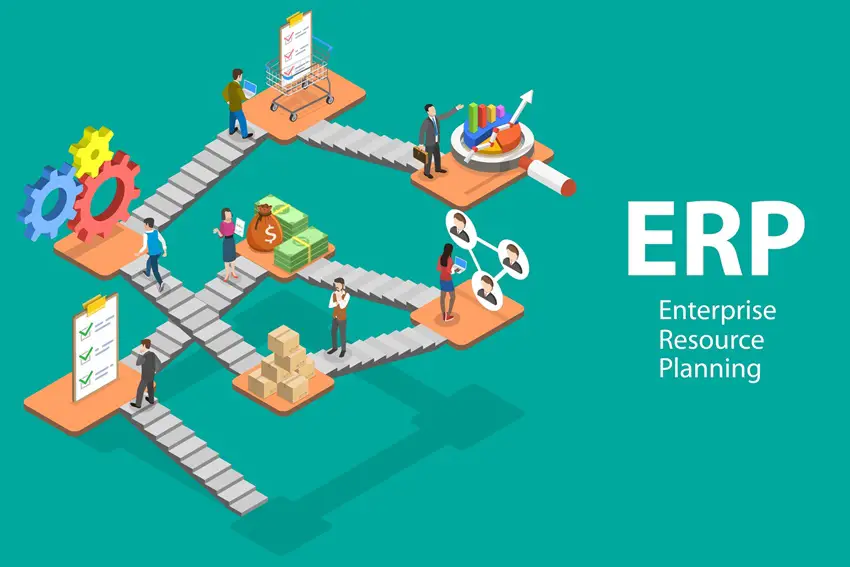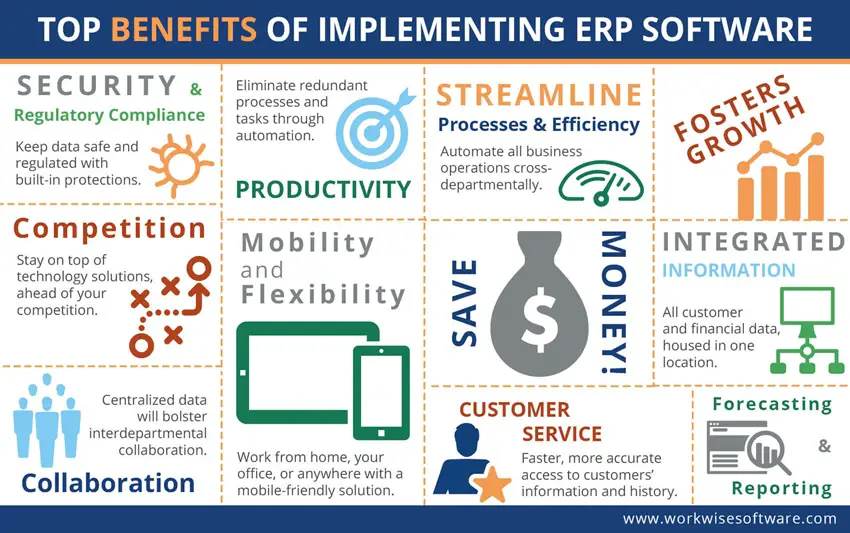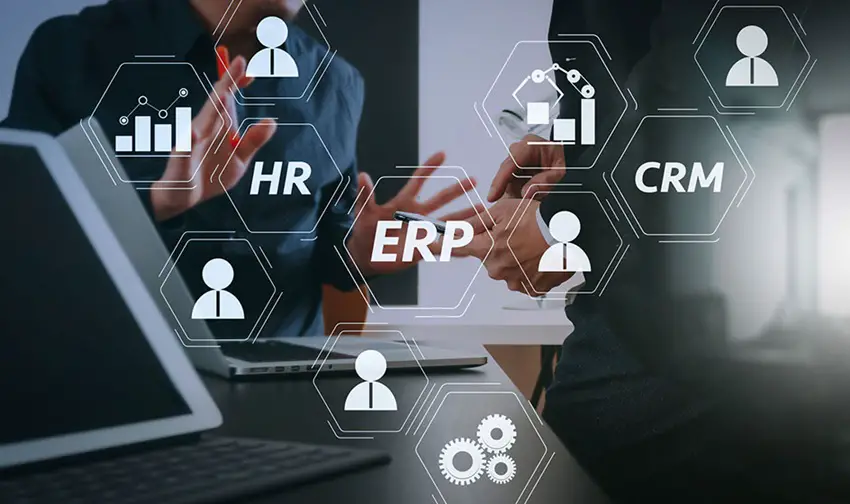In today’s competitive world, the efficient operation of an organization depends on the flow of information. This is because the free flow of information is critical to achieving the set goals and objectives of an organization.
At a time when digital transformation is becoming increasingly important for all businesses, an organization must update its work tools to gain productivity, improve cybersecurity, and ensure that operations run smoothly in any situation.
While this may be difficult to achieve without training, some organizations are skilled in helping you achieve financial and operational goals. Most of these organizations use a popular tool known as ERP. You can visit https://logicdata.com/ to learn more about them.
ERP is an acronym that stands for Enterprise Resource Planning. ERP is a form of business management software that enables a company to use a set of integrated applications. It is the coordinated management of key business processes, which is mostly done in real-time and mediated by software and technology. It allows an organization’s data and processes to be consolidated into a single structure which makes decision-making easier.
Enterprise Resource Planning has been a part of the digital industry over the past few years. Even though the adoption rate is rising by the day, many organizations are still unaware of its significance. Since businesses are striving for a competitive advantage, it should be worth asking experienced professionals like the Syte Consulting Group to see how this tool can result in increased efficiency and benefit for businesses.
Consolidation of Organizational Structure
The primary benefit of this tool is that it allows an organization to compile its core processes in one unit. Human resources, banking, distribution, production, and other key activities are all consolidated into a single structure. Practically, ERP serves as a project management tool within the business.
For instance, when the sales team confirms an order, the system will automatically generate notifications for the financial department, inventory department, and purchasing department to update and restore stock.
Management of Customer Relationships
Most businesses do not know how to maintain good customer relationship and this affects their visibility in the market. Customer relationship is a critical and challenging job in most companies. Due to several official engagements, employees tend to pay less attention to customer relationships and this can affect the company. Employees have more leverage with ERP programs which allows them to concentrate on customer issues and reviews. If all the official communication is routed through a single board, consumers would be better informed.
Enhanced Productivity
Generating papers, downloading and submitting attachments, and still failing to meet deadlines can be tasking. However, employee productivity will improve and they will be able to concentrate on other programs if all of these procedures can be completed with a single tool.
Implementing ERP would improve the productivity of day-to-day operations by streamlining the flow of information among employees. As a result, employee productivity will improve, and operational costs will be reduced.
Reduction of Cost
ERP funding is a long-term commitment. Also, open-source resources are available in the market as part of the new trends. Organizations that do not want to spend a lot of money on software can use this ready-made software in their systems.
Not only is fixed capital being reduced, but working capital is also becoming more effective. Every process is handled by a single tool, which eliminates the need for workers to be trained on several platforms and this allows them to concentrate on other tasks.
Improved Communication
If employees do not have a platform where information can be effectively shared, it is likely to affect the overall performance of the organization. This is because communication is essential at all levels of an organization, from management down to the employees. To handle projects and other activities effectively, ERP systems provide system communication mechanisms such as task delegation, group chats, file sharing, etc.
If you are looking for tips on how to improve communication in an organization, you can check here.
Organizational Growth
An ERP system helps an organization develop by eliminating inefficiencies, wasted resources, and time. If an organization’s productivity is affected by outdated systems, then upgrading to a new ERP system allows the organization to reach its full potential. It is also a way to save time since everything would be centralized and easily accessible.
Control of Business Operations
Many business operations, such as sales, deliveries, payments, manufacturing, inventory management, quality control, and human resource management, can be controlled with ERP software.
A return on investment
Whereas other Excel-based management tools can easily become time-consuming and error-prone, ERP can centralize data in a single database and automate tasks or operations according to each business or organization. The effect can be felt at all levels of the organization, including functional, operational, and organizational levels.
Each business’s return on investment (ROI) is unique and is determined by several factors: the perimeter, customization degree, degree of importance of change, support services, maintenance, user training, and so on.
ERP software is designed to last. When a business chooses to integrate a solution, it must do so as part of an identified project. It must also ensure that the tool, its digital transformation, and its strategic goals are all in alignment. Companies who have invested in an ERP that is tailored to their needs (market, competition, industry, internal culture, product types, ecosystem, etc.) have seen substantial returns on their investment over time.
Integration of Units and Departments
ERP is a software system that integrates all of a business’s main departments. Stocks, sales, acquisitions, and accounting are only a few examples. ERP program is responsible for structuring the information system. It ensures better communication and fewer organizational errors, which have a financial, profitability, and competitiveness effect.
Customer satisfaction increases. Why? Since this tool allows for improved departmental coordination, order process tracking, and inventory control, orders and invoices are submitted on time to prevent delivery or payment delays.
These are some uses of this software. If you need other tips on how to achieve success in your organization, you can check here: https://www.labmanager.com/business-management/how-to-achieve-long-term-business-success-25463
Conclusion
One of the viable tools any organization can use to achieve set goals and objectives is ERP solutions. With proper implementation and monitoring, all teams will step up to their responsibility and this will in turn yield positive results for the organization. We have outlined some relevance of ERP in this article. Feel free to check them out.




Enterprise Resource Planning (ERP) has been a part of the modern industry for the last few years, even though some organizations are still not conscious of its consequence. Furthermore, my organization has been enabling to set up an integrated application by using this software. Not surprisingly, this tool is becoming more common these days.